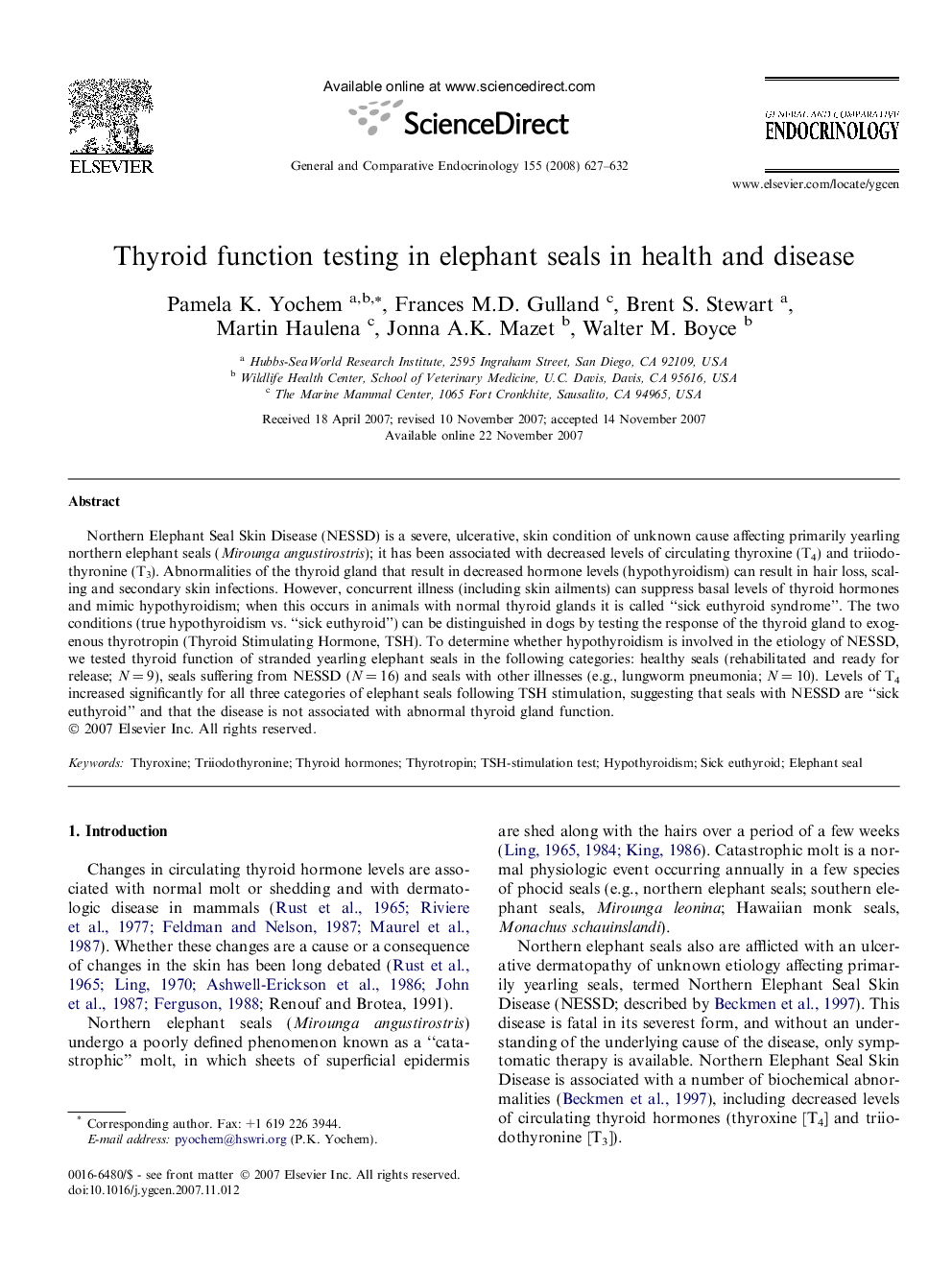| Article ID | Journal | Published Year | Pages | File Type |
|---|---|---|---|---|
| 2802048 | General and Comparative Endocrinology | 2008 | 6 Pages |
Northern Elephant Seal Skin Disease (NESSD) is a severe, ulcerative, skin condition of unknown cause affecting primarily yearling northern elephant seals (Mirounga angustirostris); it has been associated with decreased levels of circulating thyroxine (T4) and triiodothyronine (T3). Abnormalities of the thyroid gland that result in decreased hormone levels (hypothyroidism) can result in hair loss, scaling and secondary skin infections. However, concurrent illness (including skin ailments) can suppress basal levels of thyroid hormones and mimic hypothyroidism; when this occurs in animals with normal thyroid glands it is called “sick euthyroid syndrome”. The two conditions (true hypothyroidism vs. “sick euthyroid”) can be distinguished in dogs by testing the response of the thyroid gland to exogenous thyrotropin (Thyroid Stimulating Hormone, TSH). To determine whether hypothyroidism is involved in the etiology of NESSD, we tested thyroid function of stranded yearling elephant seals in the following categories: healthy seals (rehabilitated and ready for release; N = 9), seals suffering from NESSD (N = 16) and seals with other illnesses (e.g., lungworm pneumonia; N = 10). Levels of T4 increased significantly for all three categories of elephant seals following TSH stimulation, suggesting that seals with NESSD are “sick euthyroid” and that the disease is not associated with abnormal thyroid gland function.
